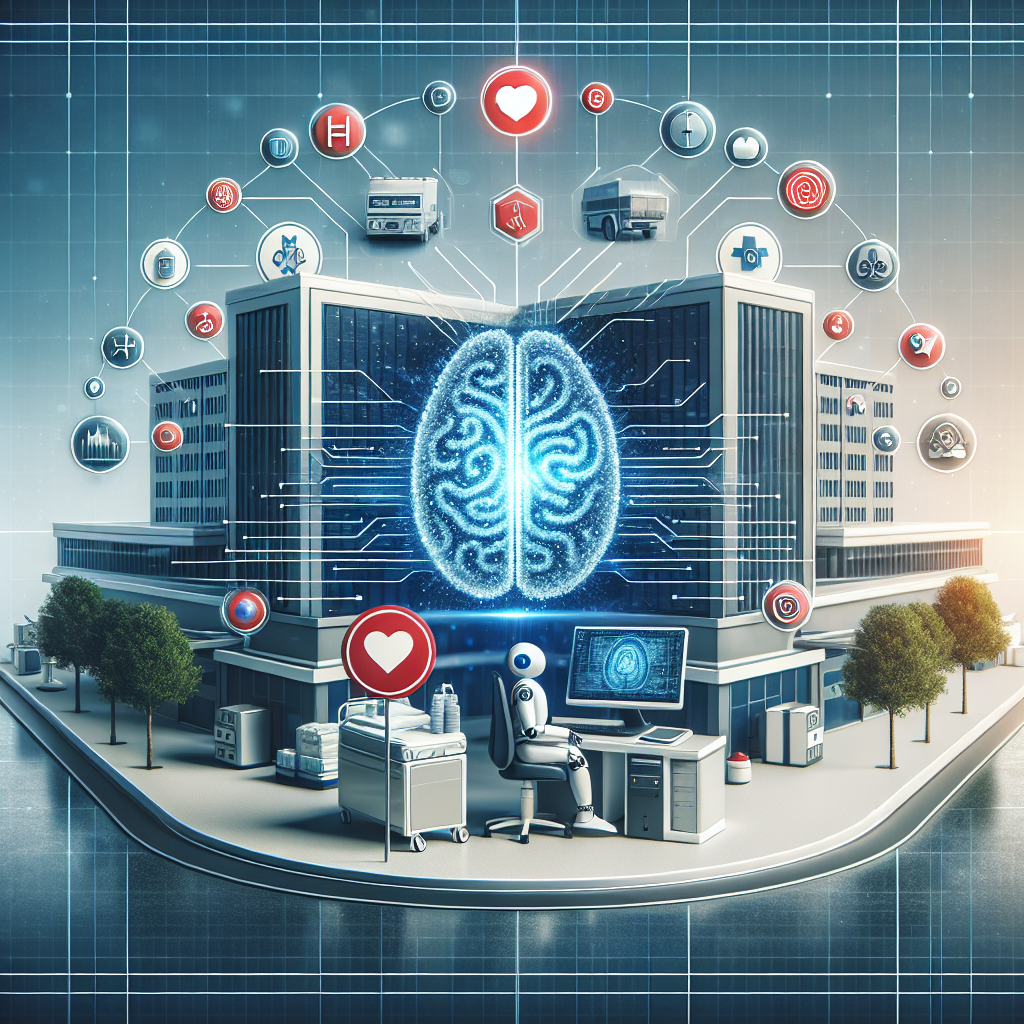The Potential Risks of AI Software in Healthcare
Artificial intelligence (AI) has the potential to revolutionize the healthcare industry by improving patient care, streamlining processes, and reducing costs. AI-powered software can analyze vast amounts of data, identify patterns, and make predictions that can help healthcare providers make more informed decisions. However, as with any emerging technology, there are risks associated with the use of AI software in healthcare. In this article, we will explore some of the potential risks and challenges that healthcare providers need to be aware of when implementing AI solutions.
1. Data Privacy and Security Concerns
One of the biggest risks associated with AI software in healthcare is the protection of patient data. AI systems rely on large datasets to train their algorithms and make accurate predictions. This means that sensitive patient information, such as medical records, test results, and treatment plans, is often stored and processed by AI software. If this data is not properly secured, it could be vulnerable to cyberattacks, data breaches, and unauthorized access.
Healthcare providers must ensure that they have robust data security measures in place to protect patient information from potential threats. This includes encrypting data, implementing access controls, regularly monitoring for suspicious activity, and keeping software and systems up to date with the latest security patches. Failure to adequately protect patient data could not only jeopardize patient privacy but also result in legal and financial consequences for healthcare organizations.
2. Bias and Discrimination
AI algorithms are only as good as the data they are trained on. If the data used to train AI software is biased or incomplete, the algorithms may produce biased or discriminatory results. This is particularly concerning in healthcare, where decisions based on AI predictions can have life-altering consequences for patients.
For example, if an AI system is trained on data that disproportionately represents certain demographic groups, it may inadvertently perpetuate existing disparities in healthcare outcomes. Healthcare providers must be vigilant in monitoring AI algorithms for bias and discrimination and take steps to mitigate these risks. This may include diversifying training data, conducting regular audits of AI systems, and implementing fairness and transparency measures in algorithm development.
3. Lack of Regulation and Oversight
The rapid advancement of AI technology has outpaced the development of regulations and standards to govern its use in healthcare. This lack of oversight poses risks to patient safety, data privacy, and ethical considerations. Without clear guidelines on how AI software should be developed, deployed, and monitored, healthcare providers may struggle to ensure that AI systems are safe, effective, and ethical.
Regulatory bodies and policymakers are beginning to address these concerns by developing frameworks for the responsible use of AI in healthcare. Healthcare providers must stay informed about these regulations and comply with industry best practices to mitigate the risks associated with AI software.
4. Misdiagnosis and Errors
While AI software has the potential to improve diagnostic accuracy and treatment outcomes, there is also the risk of misdiagnosis and errors. AI algorithms may misinterpret data, make incorrect predictions, or overlook critical information that could impact patient care. Healthcare providers must be cautious when relying on AI software for clinical decision-making and always verify AI recommendations with their own expertise and judgment.
Additionally, AI systems may be vulnerable to technical glitches, bugs, or malfunctions that could compromise their accuracy and reliability. Healthcare providers should have contingency plans in place to address these issues and ensure that patient care is not disrupted by AI errors.
5. Resistance and Adoption Challenges
Implementing AI software in healthcare can be a complex and challenging process. Healthcare providers may face resistance from staff members who are unfamiliar with AI technology or skeptical of its benefits. Training and education programs may be necessary to help healthcare professionals understand how AI software works, how it can improve patient care, and how to effectively integrate it into their workflows.
Additionally, healthcare organizations may encounter technical challenges when integrating AI software with existing systems and processes. Compatibility issues, data integration problems, and interoperability concerns can hinder the adoption of AI solutions and limit their effectiveness. Healthcare providers must carefully evaluate their IT infrastructure, resources, and capabilities before implementing AI software to ensure a smooth and successful deployment.
FAQs
Q: How can healthcare providers mitigate the risks associated with AI software in healthcare?
A: Healthcare providers can mitigate the risks associated with AI software by implementing robust data security measures, monitoring AI algorithms for bias and discrimination, complying with regulations and industry best practices, verifying AI recommendations with clinical expertise, developing contingency plans for AI errors, and providing training and education programs for staff members.
Q: What regulatory frameworks govern the use of AI software in healthcare?
A: Regulatory bodies and policymakers are developing frameworks for the responsible use of AI in healthcare, such as the FDA’s Digital Health Innovation Action Plan, the European Commission’s Ethics Guidelines for Trustworthy AI, and the World Health Organization’s Global Strategy on Digital Health.
Q: How can healthcare providers address resistance and adoption challenges when implementing AI software?
A: Healthcare providers can address resistance and adoption challenges by providing training and education programs for staff members, evaluating their IT infrastructure and capabilities, addressing technical challenges related to integration and interoperability, and communicating the benefits of AI software to stakeholders.
In conclusion, AI software has the potential to transform healthcare by improving patient care, streamlining processes, and reducing costs. However, there are risks and challenges associated with the use of AI in healthcare that must be carefully considered and addressed. By implementing robust data security measures, monitoring for bias and discrimination, complying with regulations, verifying AI recommendations with clinical expertise, and addressing resistance and adoption challenges, healthcare providers can maximize the benefits of AI software while minimizing the risks to patient safety and data privacy.

